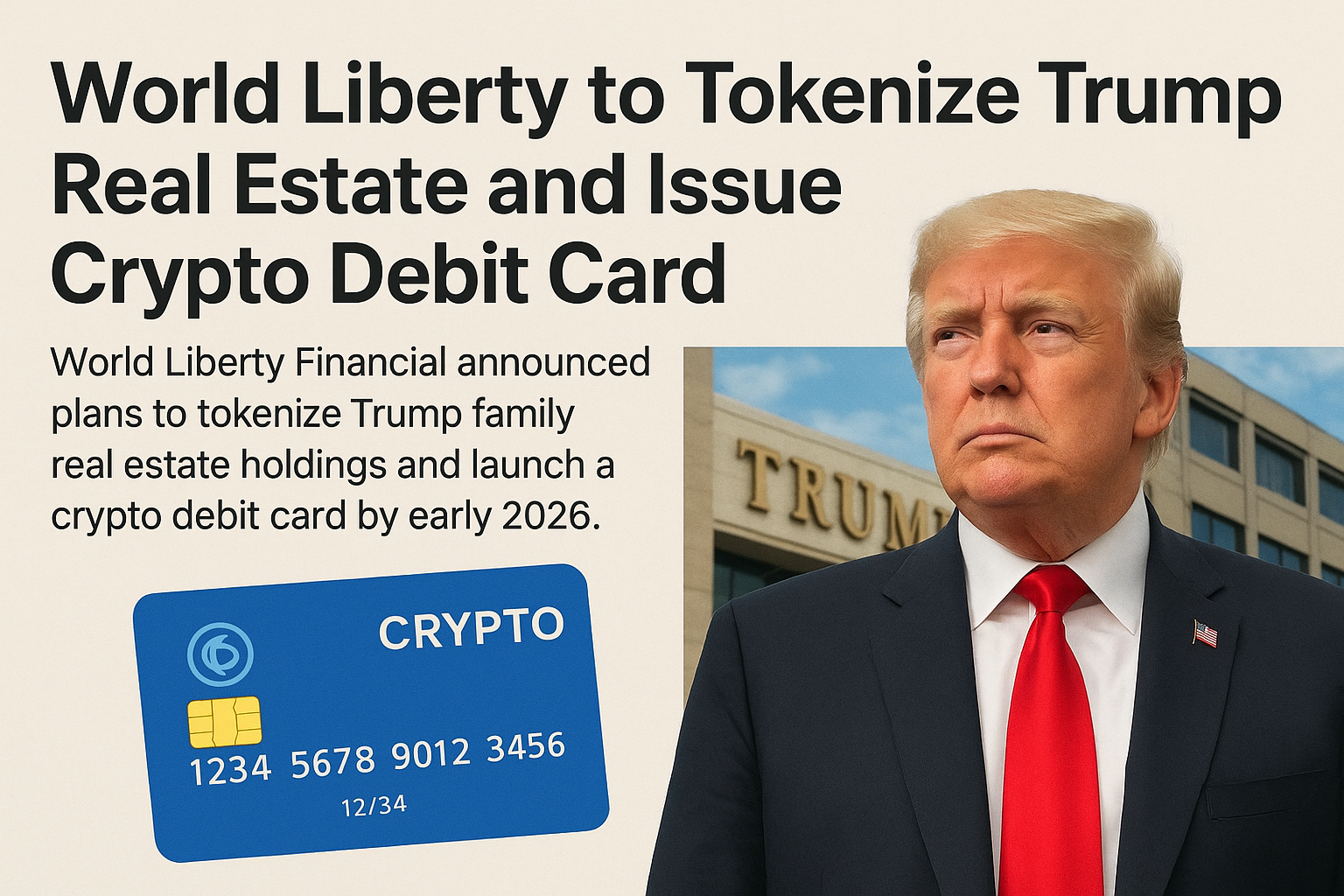In a bold intersection of politics, property, and blockchain, World Liberty Financial has announced plans to tokenize real estate assets associated with the Trump family portfolio and issue a crypto-backed debit card by early 2026. The project, which bridges the tangible world of luxury real estate with the fast-evolving realm of digital finance, could mark one of the most high-profile tokenization efforts in the United States to date.
Tokenizing Trump’s Real Estate Empire
Tokenization—the process of representing ownership of real-world assets as digital tokens on a blockchain—has gained momentum in recent years. From luxury homes in Miami to commercial towers in Dubai, real estate tokenization is reshaping how investors buy, sell, and hold property.
Now, World Liberty Financial is aiming to bring this model to one of the most recognizable property brands in the world: Trump.
According to the company’s statement, the plan involves digitizing ownership shares of Trump-branded real estate holdings, allowing investors around the world to purchase fractional stakes through blockchain tokens. These tokens would represent verified shares in revenue-generating assets, backed by physical property and managed through secure smart contracts.
If successful, it could open a new investment channel for both Trump supporters and blockchain investors—offering access to a high-profile real estate portfolio that was once limited to institutional players.
A Crypto Debit Card for Everyday Use
In addition to tokenization, World Liberty Financial also announced the launch of a crypto debit card, designed to connect digital assets with the traditional financial system. The card would allow users to spend crypto directly from their wallets, converting assets like Bitcoin, Ethereum, or the Trump tokens into fiat currency at the point of sale.
The company says the card will include features such as instant conversions, staking rewards, and NFT-based membership tiers—each offering different levels of access and benefits. Early renderings show a sleek, gold-toned card branded with both World Liberty and Trump insignias, signaling the project’s emphasis on prestige and exclusivity.
Political and Financial Implications
The announcement comes amid a renewed wave of blockchain adoption in the U.S., and potentially ties into a broader push for financial innovation within conservative circles. Trump himself, who previously criticized cryptocurrencies, has recently shown support for “American crypto leadership” and hinted at regulatory reforms favorable to digital assets.
By aligning with a project that combines American real estate, financial sovereignty, and blockchain innovation, World Liberty Financial could be positioning itself at the nexus of both political and technological narratives leading up to 2026.
The Bigger Picture: Real-World Asset (RWA) Tokenization
Tokenizing real-world assets (RWA) is one of the hottest trends in decentralized finance (DeFi) right now. Analysts project the RWA token market could surpass $16 trillion by 2030, as investors seek on-chain exposure to stable, yield-generating assets like real estate, commodities, and bonds.
If World Liberty Financial’s project gains traction, it could act as a major validation for RWA tokenization—especially in the U.S., where regulatory uncertainty has slowed mainstream adoption. The Trump connection adds both brand recognition and controversy, guaranteeing the project global attention.
Looking Ahead
Whether this initiative becomes a symbol of innovation or simply another headline depends on execution and regulation. Tokenizing Trump’s real estate portfolio would require transparent valuation, compliance with securities laws, and a robust technological framework.
But if successful, it could redefine how political figures, investors, and ordinary citizens interact with wealth itself—bridging the gap between legacy power and decentralized technology.
One thing is clear: by 2026, the lines between property, politics, and crypto may be more blurred—and more interconnected—than ever before.




